
July 2021, Volume 2, Issue 9
Office of Elementary and Secondary Education (OESE)
Office of State Grant and Program Support Newsletter
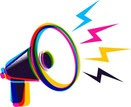 |
|
ANNOUNCEMENT: Watch for a new name for this newsletter, coming this fall!
|
|
ATTENTION: Don't miss the funding opportunities from the Federal Communications Commission and the Office of Indian Education.
|
|
 |
 |
|
REMINDER: If you received an invitation to complete the 2021 Grantee Satisfaction Survey, please consider providing feedback. Survey invitations were sent by email on June 8. The survey is used to identify what the Department of Education does well and where we can improve. Reach out to your program officer with questions.
|

From the Deputy Assistant Secretary
Letter From Ruth Ryder, Deputy Assistant Secretary for the Office of State Grant and Program Support

Dear Partners and Stakeholders:
Summer is in full swing and, I don’t know about you, but I am enjoying the longer and warmer days and time outdoors. It also feels like we have crossed a new threshold with the pandemic — we are able to do things that did not seem possible six months ago. My home state, Virginia, is at 70% vaccinated and moving up!
The theme of this month’s newsletter is supporting school personnel. During these summer months, school personnel will, hopefully, have the opportunity to relax and recharge! As part of that, I know they will both reflect on the previous year and plan for the upcoming year. School personnel were central to making this past school year happen. They successfully analyzed the ever-changing landscape of the pandemic and then utilized this information to protect students, all while still facilitating learning. I extend my thanks and gratitude for this Herculean effort, and hope the summer affords all school personnel the opportunity to refresh before the start of the next school year.
In this month’s newsletter, we highlight a number of technical assistance resources to support school personnel. One of the main sections on the Safer Schools and Campuses Best Practices Clearinghouse website is Early Childhood Provider, Teacher, Faculty, and Staff Well-Being, Professional Development, and Supports. It contains numerous resources to help the social, emotional, physical, and other needs of school personnel. If you have resources on this topic, please submit them to the clearinghouse at bestpracticesclearinghouse@ed.gov.
Thanks to all of you who worked so hard to develop your state plans under the American Rescue Plan Elementary and Secondary School Emergency Relief Fund (ARP ESSER). Staff from across OESE are hard at work reviewing and approving plans. It is evident that States are working diligently to determine how to best serve students most impacted by COVID-19. We will be identifying promising practices from the ARP ESSER state plans to share out broadly.
Okay, that’s a wrap. Enjoy the summer and I look forward to next month as we prepare for the 2021–22 school year!
Best,
Ruth Ryder
|

Featured Technical Assistance Center: You for Youth
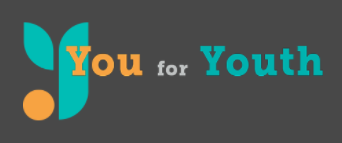
You for Youth (Y4Y) is funded by the U.S. Department of Education (Department) through the Nita M. Lowey 21st Century Community Learning Centers grant program (21st CCLC). Y4Y serves as the Department’s technical assistance center for out-of-school time programs that serve students who attend high-poverty and low-performing schools. Y4Y offers targeted in-person and virtual technical assistance at the request of state agencies.
Y4Y professional development resources are available to all educators (not just grantees) at https://y4y.ed.gov. Content decisions are guided by 21st CCLC grantees’ needs and Department priorities. Resources include more than 20 interactive online training courses and microlearning “click & go” options. Learners can earn a certificate of course completion on their own schedule in five to 10 hours, depending on the course. Topics include civic learning and engagement, creating a positive learning environment, family engagement, financial literacy, including students with disabilities, social and emotional learning, STEAM, strategic partnerships, student voice and choice, summer learning, and supporting English learners. Learners can complete Click & Go sessions in as little as 30 minutes. Each Click & Go includes a video mini-lesson, podcasts, FAQ, tools, and links to selected resources.
Other resources available on the Y4Y website include live and recorded webinars, a newsletter, a blog, podcasts, toolkits and customizable tools, sample lessons and trainings, and planning and implementation checklists.
|

Meet Department Staff Member Gail Payne
How long have you been at the Department?
- I started with the Department of Education in 2005. I currently work in the Office of Elementary and Secondary Education, 21st Century Community Learning Centers program, as an education program specialist.
What do you most enjoy about working at the Department?
- Although I am not working directly with children, I truly enjoy working behind the scenes on their behalf. It’s rewarding providing technical assistance and guidance to our stakeholders to ensure the fidelity of the program. In addition, keeping track of their progress, success, [and] achievements, and hearing the stories told by their data is fulfilling.
What is one thing you’d like to see happen for this TA Center in the next year?
- In the future I would like to see more technical assistance (TA) focused on social emotional learning and equity. COVID-19 has had a huge impact on children and has brought to light the inequities in education. Providing TA focusing on their social and emotional needs and equity is key to assisting them to getting back on track and filing the gap of “lost instructional time” and providing a means for learning recovery.
|

Centers for Disease Control and Prevention Updates
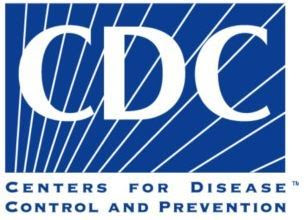
CDC Guidance for Child Care, Schools, and Youth Programs
The CDC maintains guidance for child care, schools, and youth programs to plan, prepare, and respond to the COVID-19 pandemic. The guidance addresses operating schools during COVID-19, decision-making indicators for reopening, testing, and contact tracing, and communication tips, among others.
Updated Guidance for Operating Youth and Summer Camps During COVID-19
The CDC guidance for operating youth and summer camps during COVID-19 is intended to help camp administrators operate camps while preventing the spread of COVID-19 and protecting campers, their families, staff, and communities. The CDC recently updated the Operational Strategy for K–12 Schools through Phased Prevention guidance, which summer learning programs on school grounds should follow. During the Summer Learning and Enrichment Collaborative, Dr. Erin K. Sauber-Schatz from the CDC discussed the implications of the recent updates. To view past Summer Learning and Enrichment Collaborative events, visit this webpage.
|

Technical Assistance Resources: Supporting School Personnel

Safer Schools and Campuses Best Practices Clearinghouse
The Safer Schools and Campuses Best Practices Clearinghouse (Clearinghouse) highlights the innovative work underway nationwide to reopen K–12 schools, early childhood centers, and postsecondary institutions. Through the Clearinghouse, the Department is providing examples of how schools and other education institutions can safely reopen as communities continue recovering from the COVID-19 pandemic. Resources submitted to the Clearinghouse undergo a rigorous vetting process before being posted to the website.
One of the main sections of the Clearinghouse, Teacher, Faculty, and Staff Well-Being, Professional Development, and Supports, provides resources that help address the social, emotional, physical, and other needs of early childhood providers, teachers, faculty, and staff. For example, this brief by the Region 2 Comprehensive Center outlines wellness strategies for personal self-care, modeling positive behaviors for students, and tips on leveraging wellness at the community level.
|

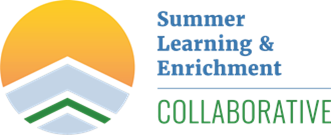
Summer Learning and Enrichment Collaborative
The next installment of the Summer Learning & Enrichment Collaborative is scheduled for Thursday, July 8, from 3 to 5 p.m. ET. Join this session for practical tools, strategies, and opportunities for peer sharing on building school-community partnerships, effectively using fiscal resources, attracting, and supporting staff for summer programs, employing evidence-based learning and enrichment strategies, addressing the full range of student needs, and tailoring supports to specific student populations. Future sessions are scheduled for July 22, and Aug. 12. Sign up to receive updates and registration information by clicking here. To view recordings of previous Summer Learning & Enrichment Collaborative convenings, federal guidance, resources to support summer learning and enrichment, and resources on accelerated learning, click here.
|
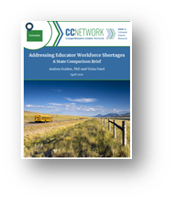
Addressing Educator Workforce Shortages
This state comparison brief by the Region 12 Comprehensive Center includes the innovative programs, policies, and practices that state education agencies and other education entities are using to mitigate educator staffing challenges. The brief highlights common and promising practices that address educator shortages, examines how states are tackling these shortages specifically in the context of COVID-19, and provides a state-by-state crosswalk of efforts to recognize, address, and mitigate educator shortages. When used in conjunction with workforce data and local context considerations, the strategies and resources in this brief can help state education stakeholders develop comprehensive approaches to addressing educator shortages.
|
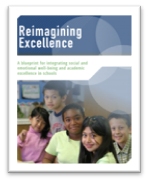
Reimagining Excellence: A Blueprint for Integrating Social and Emotional Well-Being and Academic Excellence in Schools
Just as constructing a well-designed school building requires a blueprint, so does designing an effective and equitable learning program that addresses the needs of the whole child. Success occurs through a cycle of purposeful planning, action, and continuous monitoring. This blueprint–a collaboration of the Region 13 Comprehensive Center, the Oklahoma State Education Department, the Center to Improve Social and Emotional Learning and School Safety, and the National Center for Systemic Improvement–details the indicators of learning programs that successfully integrate equity, well-being, and academics. It incorporates input from in-person and remote educators, school leaders, researchers, professional learning providers, and technical assistance providers.
|

Trauma-Informed Practices Resource List Dashboard
This dashboard by the National Comprehensive Center contains curated collections of resources from a variety of organizations for educators and families in four trauma-informed practices topics: distance learning, addressing grief, historical trauma, and self-care for educators. Check back often, as the site is updated regularly.
|

Restorative Practices Guide for Administrators and Teacher Leaders
The Center for Education Equity (EAC Region I) at the Mid-Atlantic Equity Consortium (MAEC) recently released Getting Started with Restorative Practices: A Guide for Administrators and Teacher Leaders. This resource is designed to help school leaders and educators use restorative approaches to build relationships and address conflict in their schools. Restorative practices is an approach that aims to build relationships within a community as well as prevent and respond to conflict and wrongdoing. In this guide you will find
- an introduction to restorative practices, including specific practices and key processes.
- a framework that provides initial guidance to school leaders to explore and promote restorative practices.
- tips on managing the school-wide adoption of restorative practices.
|
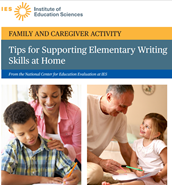
Resources to Support Summer Learning at Home
The Department’s Institute of Education Sciences, OESE, and Office of Special Education Programs would like to share the following learning resources to support families with literacy, math, and writing activities they can use at home this summer.
- Supporting Young English Learners at Home
-
![]()
About the Author
Ruth Ryder is the Deputy Assistant Secretary for the Office of Office of State Grant and Program Support in the Office of Elementary and Secondary Education (OESE) at the U.S. Department of Education. In this role, Ms. Ryder oversees a broad range of management, policy, and program functions related to formula and discretionary grant programs under the Elementary and Secondary Education Act, as amended by the Every Student Succeeds Act (ESEA). Ms. Ryder was previously the deputy director of the Office of Special Education Programs in the Office of Special Education and Rehabilitative Services, which she joined in 1988. Prior to joining the Department, Ms. Ryder was a program administrator in a Washington state school district. There she had responsibility for the Elementary and Secondary Education Act Title 1 and Title II programs, state-remediation, gifted education, outcome-based education, and state- and district-wide testing programs. Ms. Ryder has a bachelor’s degree in psychology and elementary education and a master’s degree in special education.
Read next
Policy
Letter from Principal Deputy Assistant Secretary Schott re: ARP Administrative Funds Waivers
USED & White House
U.S. Department of Education Releases Final Title IX Regulations, Providing Vital Protections Against Sex Discrimination
USED & White House
OMB Announces New Final UGG
| |

























